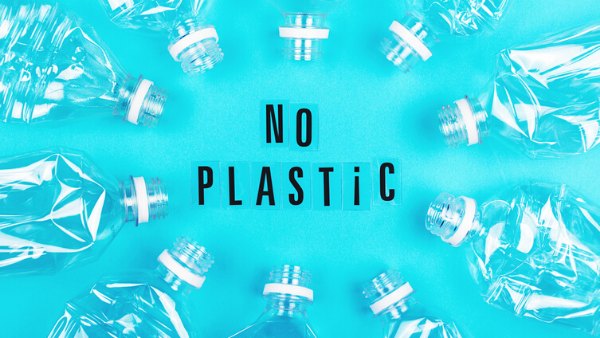The Department for Education (DfE) and Education Secretary have recently insisted all schools reduce their use of single-use plastics by 2022, and consider environmentally-friendly alternatives.
Single-use plastics are disposable plastics often used only once, including: plastic bags, straws, bottles and food packaging.
Challenges for schools
The challenge for schools is how to eliminate single-use plastics, when there are so many contributory factors, which make it difficult to avoid. For example, school suppliers using disposable packing when delivering goods, or parents using sandwich bags to wrap packed lunches.
Education Secretary Damian Hinds has asked the DfE to increase communication with the school supply chain, regarding plastic packaging of milk cartons and other day to day supplies for schools. With the plan that eventually, all schools will work with suppliers to make these small changes, which will make a big difference in single-use plastic consumption.
Plastic alternatives
- Stainless steel lunch boxes
- Reusable drinks bottles
- Homemade snacks, rather than shop bought plastic wrapped ones
- Replacing cling film for foil in the canteen and lunch boxes
- Choosing cardboard over plastic – it’s easier to recycle cardboard than plastic, plus paper products tend to biodegrade more easily
- Paper straws instead of plastic straws
- Re-think food storage such as: plastic bags, plastic cling film, and plastic storage containers. Instead of throwing away plastic bags or wrapping things in cling film, why not use bento/tiffin boxes, jars or glass containers.
Educating pupils about plastic waste
There have been many documentaries about plastic waste. David Attenborough narrating Blue Planet ll illustrated the scale of the issue. By engaging pupils about the harmful impact plastic is having on the planet, they can make a change by making the right decisions and encouraging others to do the same.
The UK’s first Plastic Free Schools
A Primary School in Devon was the first to achieve Plastic Free School status. Pupils went above and beyond in their quest to become plastic free. The pupils presented their work at the Devon County Councillors Cabinet meeting. As a result, Devon County Council passed a motion to support the Plastic Free Coastlines campaign, and committed to do more individually to reduce their single-use plastic footprint.
Huge changes were made in the school canteen; the most notable change came in the cartons of milk which were delivered daily to the school. A weeks worth of milk deliveries was causing a weeks worth of excessive waste (100 plastic cartons, 100 plastic straws, 100 plastic straw wrappers, and five lots of clear plastic packaging a week).
Following on from the School’s success, a primary school in Penzance has also met all of the requirements to achieve a Plastic Free School status. Again the pupils went above and beyond the steps required to achieve the status.
By making relatively small changes, such as replacing cling film for foil in the canteen, schools would significantly reduce plastic used in schools.
Plastic is not always fantastic!
